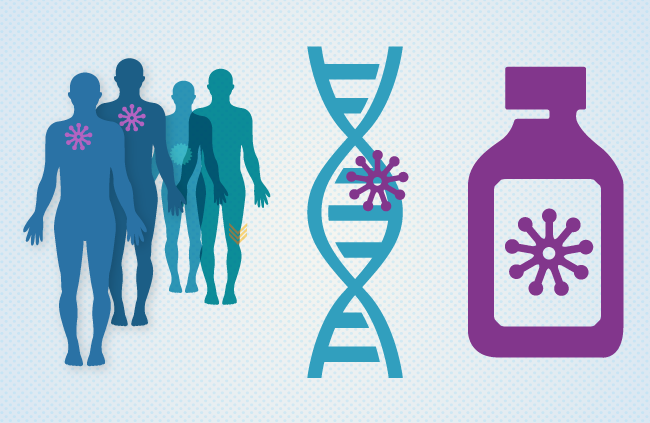Understanding Rituximab’s Impact on Cancer Therapy

Rituximab, a groundbreaking monoclonal antibody, has significantly advanced the treatment landscape for various types of cancer, particularly hematologic malignancies such as non-Hodgkin lymphoma and chronic lymphocytic leukemia. This article delves into how Rituximab has revolutionized cancer treatment, its mechanisms of action, applications, challenges, and future directions.
What is Rituximab? Historical Development of Rituximab
Rituximab, first approved by the FDA in 1997, marked a significant milestone in cancer therapy as the first monoclonal antibody to treat cancer. Its development and approval introduced a new era in targeted cancer treatments.
The Science Behind Rituximab
Rituximab targets the CD20 antigen on the surfaces of pre-B and mature B lymphocytes. By binding to CD20, Rituximab initiates immune responses that lead to the destruction of malignant B cells.
Rituximab’s Mechanism of Action
The drug works through several mechanisms, including antibody-dependent cellular cytotoxicity (ADCC), complement-dependent cytotoxicity (CDC), and inducing apoptosis directly in B cells.
Rituximab in Clinical UseRituximab’s Application in Non-Hodgkin Lymphoma
In non-Hodgkin lymphoma, Rituximab has improved survival rates significantly when used in combination with chemotherapy regimens.
Use in Other Cancers
Beyond lymphoma, Rituximab has shown effectiveness in treating other B-cell-related cancers and autoimmune diseases, reflecting its versatility.
Advantages Of Traditional Therapies
Rituximab offers a more targeted approach, which typically results in fewer side effects compared to traditional chemotherapy.
Combining Rituximab with Other TreatmentsInnovative Combination Therapies
Research continues to explore Rituximab in combination with other drugs, aiming to increase its efficacy and reduce resistance.
Case Studies: Success Stories and Challenges
Several clinical trials and case studies highlight the success of Rituximab, as well as the challenges, such as developing resistance.
Future Directions in Rituximab ResearchNext-Generation Monoclonal Antibodies
The development of next-generation antibodies aims to enhance the therapeutic potential and overcome resistance to Rituximab.
Improving Patient Outcomes with Rituximab
Ongoing research focuses on personalizing Rituximab therapy to maximize its effectiveness and minimize side effects.
Global Access and Affordability Issues
While Rituximab has been a game-changer, its high cost and limited availability in low-income countries pose significant challenges.
The Impact of Rituximab: A Summary
Rituximab has not only transformed therapeutic approaches but also significantly improved patient outcomes in B-cell malignancies. Its continued evolution and integration into treatment protocols underscore its importance in oncology.
The Future of Rituximab and Cancer Treatment
As we look toward the future, Rituximab remains at the forefront of innovative cancer treatment. Its ongoing development and the exploration of new combination therapies promise to further enhance its efficacy and applicability, offering hope to millions affected by cancer worldwide.
FAQs: Everything You Need to Know About Rituximab
How does Rituximab work against cancer cells? Rituximab targets the CD20 antigen found on the surface of B lymphocytes. Once bound, it can kill these cells through several mechanisms: it recruits the body’s immune system to attack the cells (antibody-dependent cellular cytotoxicity), activates components of the immune system to directly destroy the cell (complement-dependent cytotoxicity), and can also induce the cells to undergo programmed cell death (apoptosis). This multifaceted approach makes Rituximab highly effective, especially against diseases where B cells play a crucial role, like certain types of lymphomas and leukemias.
What types of cancer is Rituximab most effective against? Rituximab is primarily used to treat cancers of the lymphatic system, including non-Hodgkin’s lymphoma and chronic lymphocytic leukemia. It’s particularly effective in cases where cancer cells express the CD20 antigen, making these cells visible targets for the antibody. Rituximab has been a cornerstone in the treatment of these cancers, often used in combination with chemotherapy to improve outcomes.
Are there any significant side effects associated with Rituximab? Yes, Rituximab can cause side effects, ranging from mild to severe. Common side effects include infusion reactions like fever, chills, nausea, and fatigue. These typically occur during the first infusion and lessen with subsequent treatments. More severe risks include infections, due to the suppression of the immune system, and rare cases of progressive multifocal leukoencephalopathy, a serious brain infection. It’s essential for patients to be monitored closely for any adverse effects throughout their treatment.
How is Rituximab administered to patients? Rituximab is administered through intravenous infusion. The first infusion is usually given slowly over several hours to monitor for any adverse reactions. Subsequent infusions may be administered more quickly if the first is well-tolerated. The dosing schedule can vary depending on the type of cancer and the specific treatment regimen, but it is often given in cycles coordinated with chemotherapy treatments.
Can Rituximab be used in combination with other treatments? Absolutely, Rituximab is most commonly used in combination with chemotherapy medications to enhance its effectiveness. This combination has been shown to improve survival rates significantly in patients with non-Hodgkin’s lymphoma and is being tested in other cancers as well. Researchers are also exploring combinations with newer forms of cancer treatments, such as immunotherapy agents, to see if they can further improve outcomes for patients.
What are the latest research developments concerning Rituximab? Recent research on Rituximab has focused on developing newer generations of monoclonal antibodies that may be more effective or have fewer side effects. There is also significant interest in understanding and overcoming resistance to Rituximab, as some patients’ cancers eventually stop responding to the treatment. Additionally, trials are ongoing to explore its use in other autoimmune diseases and in different combinations and dosing strategies to optimize its efficacy and safety for various conditions.




